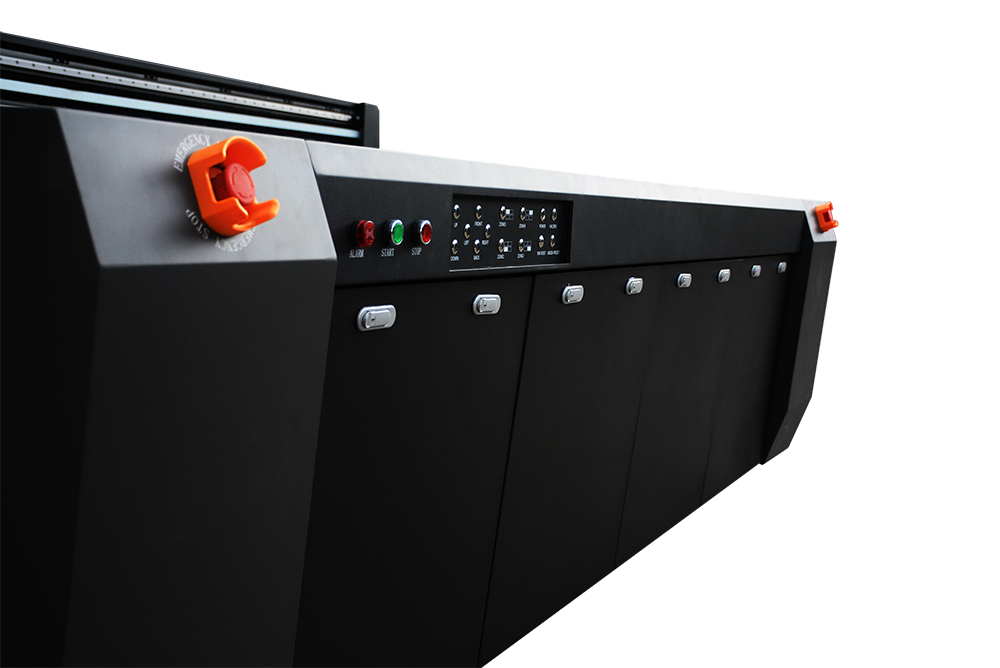UV Flatbed Printer: Understanding the Different Types of UV Inks
UV Flatbed Printer: Understanding the Different Types of UV Inks
With the advancements in printing technology, UV flatbed printers have become increasingly popular due to their versatility and efficiency. These printers utilize ultraviolet (UV) inks, which offer several advantages over traditional inks. However, choosing the right type of UV ink for your specific application can be crucial for achieving optimal results. In this article, we will explore the different types of UV inks available for UV flatbed printers, their characteristics, and their suitable applications.

1. Solvent-Based UV Inks
Solvent-based UV inks are formulated using solvents as the primary carrier. These inks are known for their fast drying properties and excellent adhesion to a wide range of materials. Solvent-based UV inks produce vibrant colors and sharp images, making them ideal for outdoor signage, banners, and other large format prints that require durability and weather resistance.
One of the main advantages of solvent-based UV inks is their compatibility with a wide range of substrates, including vinyl, PVC, and other synthetic materials. However, it’s important to note that these inks may require special handling and ventilation due to the volatile organic compounds (VOCs) they contain.
2. Water-Based UV Inks
Water-based UV inks are formulated using water as the primary solvent. These inks are environmentally friendly, non-toxic, and odorless, making them suitable for indoor environments and applications where VOC emissions are a concern. Water-based UV inks produce prints with excellent color saturation and sharpness.
These inks are particularly suitable for printing on porous substrates such as paper, cardboard, and cloth. However, they may not adhere well to non-porous surfaces like metal or glass. Water-based UV inks are often used for packaging, labels, and other commercial printing applications where food safety and environmental regulations are strict.
3. Hybrid UV Inks
Hybrid UV inks combine the best features of both solvent-based and water-based inks. These inks are designed to provide excellent adhesion on a variety of substrates while minimizing VOC emissions. Hybrid UV inks offer good durability, fast drying times, and vibrant colors.
Hybrid inks are versatile and can be used for both indoor and outdoor applications. They are particularly suitable for printing on rigid substrates like metal, glass, and plastic, as well as flexible materials like vinyl and PVC. Hybrid UV inks are often chosen for their balance between performance and environmental friendliness.
4. LED UV Inks
LED UV inks are specifically designed for use with UV LED curing systems. These inks are formulated to react quickly and efficiently to LED UV light, resulting in faster curing times and reduced energy consumption. LED UV inks produce prints with high gloss and durability, similar to traditional UV inks.
The main advantage of LED UV inks is their energy efficiency and environmental friendliness. LED UV curing systems generate less heat than traditional UV curing lamps, reducing the risk of material damage and warping. LED UV inks are suitable for a wide range of applications, including packaging, labels, and signage.
5. Low-Migration UV Inks
Low-migration UV inks are specially formulated to minimize the migration of ink components into the substrate or adjacent materials. These inks are often used for food packaging and other applications where ink migration could pose a health risk. Low-migration UV inks comply with strict food safety regulations and are suitable for direct contact with foodstuffs.
In addition to their safety features, low-migration UV inks produce high-quality prints with excellent adhesion and durability. They are compatible with a variety of substrates, including paper, plastic, and metal.
6. Flexible UV Inks
Flexible UV inks are designed for printing on flexible substrates such as vinyl, PVC, and textiles. These inks are formulated to maintain flexibility and durability, even after prolonged exposure to UV light. Flexible UV inks are often used for outdoor advertising, banners, and vehicle wraps, where flexibility and weather resistance are crucial.
Choosing the Right UV Ink
Choosing the right UV ink for your UV flatbed printer depends on several factors, including the type of substrate you’re printing on, the desired durability and weather resistance of the print, and any specific regulatory requirements (such as food safety standards).
Solvent-based UV inks are suitable for outdoor applications and non-porous substrates, while water-based UV inks are ideal for indoor use and porous materials. Hybrid UV inks offer a balance between performance and environmental considerations, and LED UV inks provide energy-efficient curing. Low-migration UV inks are essential for food packaging, and flexible UV inks are perfect for outdoor advertising and vehicle wraps.
In conclusion, UV flatbed printers offer a versatile and efficient printing solution, and the choice of UV ink is crucial for achieving optimal results. Understanding the different types of UV inks available and their specific applications will help you make an informed decision when selecting the right ink for your printing needs.
